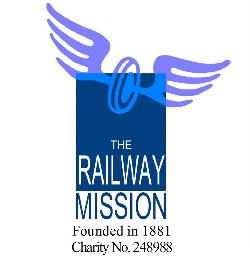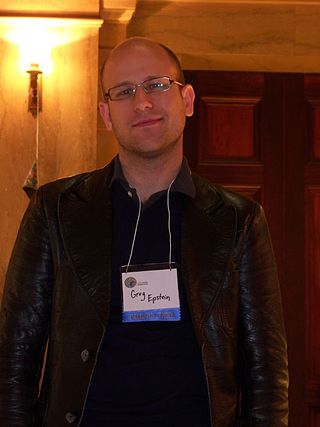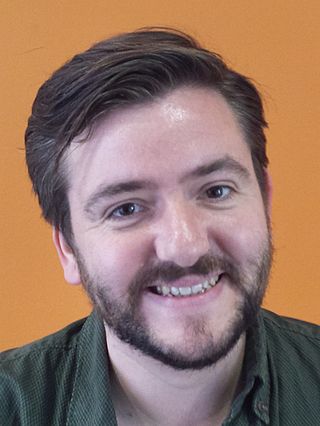
A chaplain is, traditionally, a cleric, or a lay representative of a religious tradition, attached to a secular institution, or a private chapel. The term chaplaincy refers to the chapel, facility or department in which one or more chaplains carry out their role.

Humanists UK, known from 1967 until May 2017 as the British Humanist Association (BHA), is a charitable organisation which promotes secular humanism and aims to represent "people who seek to live good lives without religious or superstitious beliefs" in the United Kingdom by campaigning on issues relating to humanism, secularism, and human rights. It seeks to act as a representative body for non-religious people in the UK.

The Royal Army Chaplains' Department (RAChD) is an all-officer department that provides ordained clergy to minister to the British Army.

A military chaplain ministers to military personnel and, in most cases, their families and civilians working for the military. In some cases they will also work with local civilians within a military area of operations.
The chaplain general is a senior chaplain in non-church organisations, such as the British and Canadian armies, and is responsible for the supervision of chaplains conducting religious services and ceremonies, representing the Christian faith in that organisation, and providing pastoral care and support within the organisation.
District Nurses work manage care within the community and lead teams of community nurses and support workers. The role requires registered nurses to take a NMC approved specialist practitioner course. Duties generally include visiting house-bound patients and providing advice and care such as palliative care, wound management, catheter and continence care and medication support. Their work involves both follow-up care for recently discharged hospital inpatients and longer-term care for chronically ill patients who may be referred by many other services, as well as working collaboratively with general practitioners in preventing unnecessary or avoidable hospital admissions.

The Royal Canadian Chaplain Service is a personnel branch of the Canadian Armed Forces that has approximately 192 Regular Force chaplains and 145 Reserve Force chaplains representing the Christian, Muslim and Jewish faiths. From 1969 to 2014 it was named the Chaplain Branch. It was renamed on October 16, 2014.
Pastoral care is an ancient model of emotional, social and spiritual support that can be found in all cultures and traditions. The term is considered inclusive of distinctly non-religious forms of support, as well as support for people from religious communities. It is also an important form of support found in many spiritual and religious traditions.
British industrial mission is a network of people who engage in christian ministry to people in economic life. This is often done by lay or ordained chaplains who build relationships with people in workplaces. They may also take part in support or campaigning roles for economic justice, such as for a living wage, protection for precarious workers or assisting people facing redundancy. In workplaces the chaplains may have a role in staff welfare, or facilitating faith provision. The intention of these faith actors (predominantly from Christian denominations), is to establish an engagement between the church and the world of work, money and employment. Chaplains form relationships with local employers and visit workplaces on a regular basis and also use their experience to help churches to understand and respond to the needs and issues. Their role is not to try to convert employees but to establish a dialogue between employers, employees and the church and provide a religious presence in the workplace. Chaplains are often independent of the business owners, and offer confidentiality.

A humanist celebrant or humanist officiant is a person who performs humanist celebrancy services, such as non-religious weddings, funerals, child namings, coming of age ceremonies and other rituals. Some humanist celebrants are accredited by humanist organisations, such as Humanists UK, Humanist Society Scotland (HSS), The Humanist Society (US), and the Humanist Association of Canada (HAC).

The Railway Mission is a British mission devoted to the rail industry. It was founded in 1881 based in mission halls, and now operates a chaplaincy service. In the early days of the Railway Mission there were a number of mission halls at railway stations throughout the country, including one at Bury St Edmunds, completed in 1900, and a 1906 building at Salisbury. An example of a Railway Mission chapel separate from a station is to be found at Norwich, at what is now Prince of Wales Road Evangelical Church.

Emergency medical services in the United Kingdom provide emergency care to people with acute illness or injury and are predominantly provided free at the point of use by the four National Health Services (NHS) of England, Scotland, Wales, and Northern Ireland. Emergency care including ambulance and emergency department treatment is only free to UK residents and a charge may be made to those not entitled to free NHS care.
End-of-life care refers to health care provided in the time leading up to a person's death. End-of-life care can be provided in the hours, days, or months before a person dies and encompasses care and support for a person's mental and emotional needs, physical comfort, spiritual needs, and practical tasks.

Greg M. Epstein is the president of the Harvard Chaplains Organization and Humanist Chaplain at Harvard University and the Massachusetts Institute of Technology. He is an ordained Humanist Rabbi, and has been influential in American humanism as a blogger, spokesperson, adviser and author of the New York Times bestsellerGood Without God: What a Billion Nonreligious People Do Believe. Epstein was an expert on the first three seasons of the reality show "Married at First Sight."
A sports chaplain provides pastoral care for the sports community, including athletes, coaches, administrators and their families. In 2017, a Global Summit of Sports Chaplaincy ministries defined sports chaplaincy as “ongoing pastoral and spiritual care, by permission, to those of faith or no faith, for the holistic well-being of all involved in the community of sport.” Different sports and cultures may adopt the practice of sports chaplaincy but under different titles, such as sports mMentor, life coach or character coach. Consequently, the practical outworking of sports chaplaincy in wide in scope, but broadly fits into 5 models of delivery and is primarily a relational approach.
Healthcare in England is mainly provided by the National Health Service (NHS), a public body that provides healthcare to all permanent residents in England, that is free at the point of use. The body is one of four forming the UK National Health Service as health is a devolved matter, there are differences with the provisions for healthcare elsewhere in the United Kingdom, and in England it is overseen by NHS England. Though the public system dominates healthcare provision in England, private health care and a wide variety of alternative and complementary treatments are available for those willing and able to pay.

Andrew James William Copson, FRSA, FCMI, MCIPR is a Humanist leader and writer. He is the Chief Executive of Humanists UK and the President of Humanists International.

In Belgium, organized secularism is the local associations and organizations which provide moral support for naturalist, atheist, agnostic, secular humanist, freethinking, Bright, or irreligious and non-confessional citizens. A person who subscribes to such entities or ideologies, or at least espouses an interest in "free inquiry" apart from religious traditions is described as a "secular" or "free-thinker".

Non-Prophet Week is an annual charity week for the irreligious in the United Kingdom and Ireland, and is coordinated by the Humanist Students. During the week, AHS societies and similar organisations in Ireland and the UK are encouraged to run charity events. The week has had different themes. Sometimes a charity has been chosen, other times groups have been encouraged to volunteer their time, donate blood and raise money for any cause or issue that they feel is important. So far over 200 Non-Prophet Week events have taken place in around 30 different cities. Over £12,000 has been raised and donated to charity.
The National School Chaplaincy Programme (NSCP), between 2011 and 2014 known as the National School Chaplaincy and Student Welfare Programme, is an Australian federal government programme which funds chaplains in Australian primary and secondary schools. The chaplains are to provide "support and guidance about ethics, values, relationships and spirituality", and is based on pastoral care, not religious instruction. The grants are $20,000 a year for schools and $24,000 for schools in remote areas.











